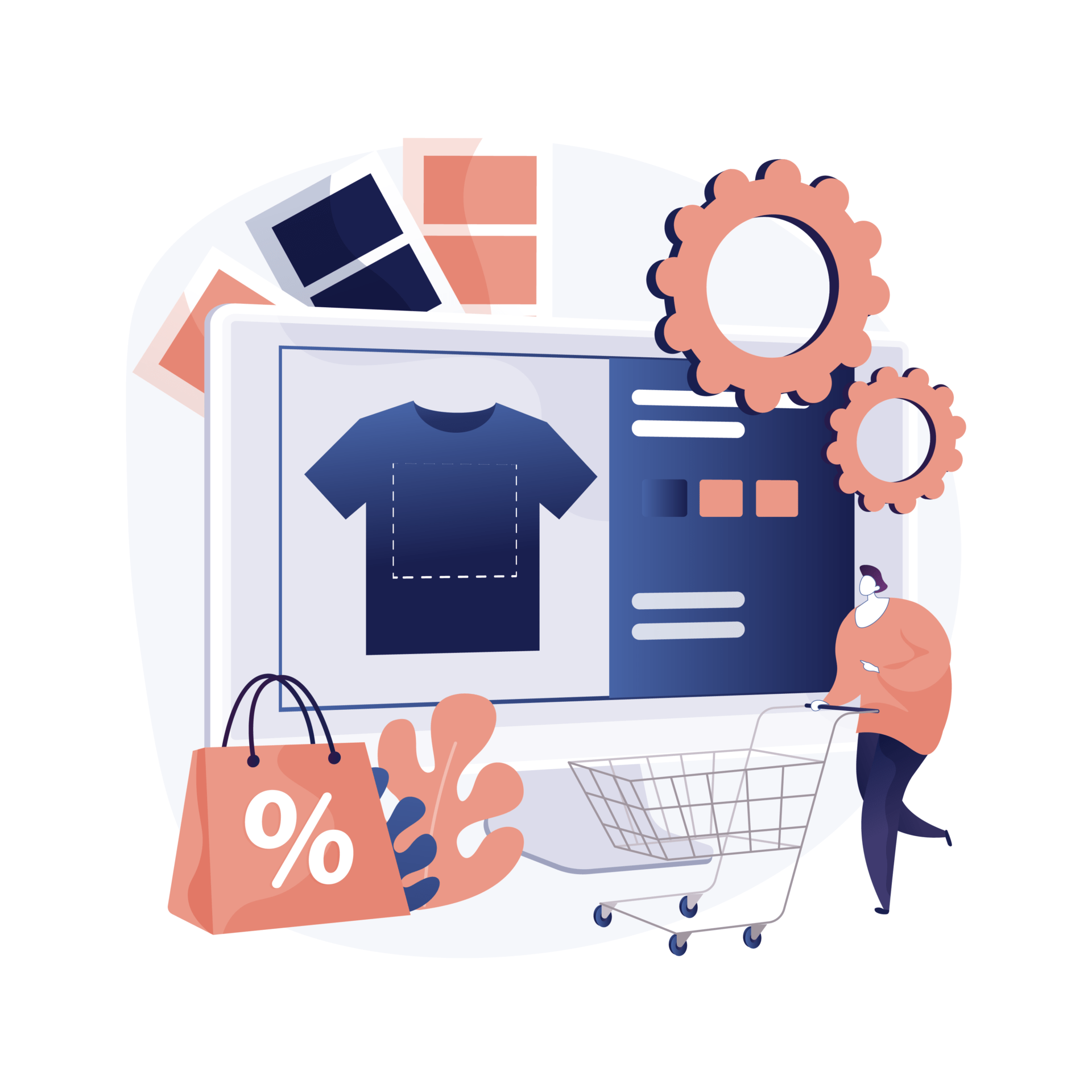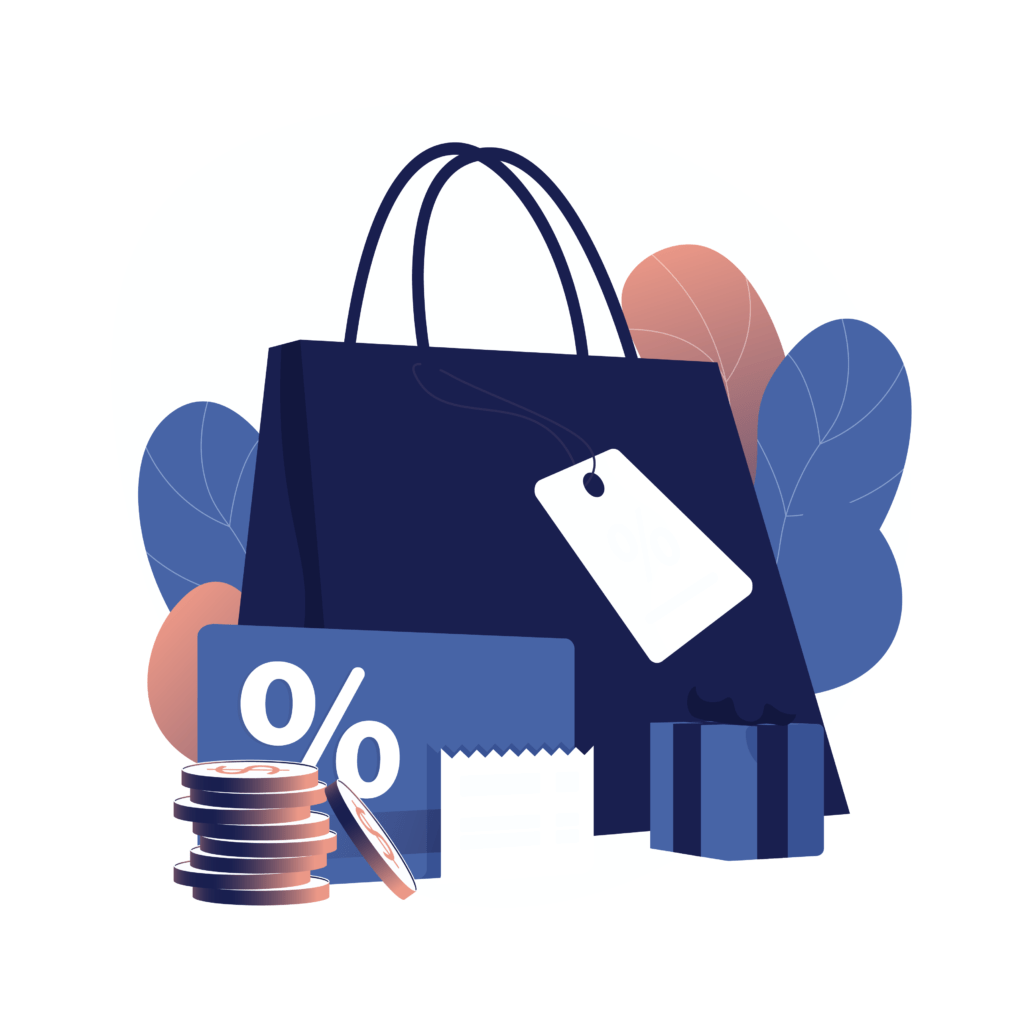Whether you’re adding private label products to your current lineup or you want to start a business built entirely on private labels, it’s crucial to know what types of products sell well. It’s also important to understand what private label products are and what this kind of business strategy involves. This guide covers all of the above to increase your chances of finding success with private label products.
What is a private label product?
A private label product is a product that carries a retail company’s brand name but is manufactured by a third-party. The retailer specifies everything about the product — from the concept and materials or ingredients to the design and packaging. The manufacturer then produces the product to these specifications and delivers the product to the retailer or ships them straight to customers.
Private label products give you a higher profit margin than you gain from reselling products from other brand or selling white label goods (products from other brands that your company rebrands as its own). This is because it’s easier to manage the upfront costs of manufacturing and shipping with private label products. Plus, you have more control over quality, meaning you can often charge more for products.
22 best private label products to sell in 2020
Certain types of products are ideal for selling as private label products, whereas there are other niches you should avoid. Currently, 22 product types stand out as the best.
1. Water Bottles
With disposable water bottles increasingly falling out of favor, the demand for reusable water bottles is steadily increasing. Since ever more people are become aware of the importance of being environment-friendly and seeking new ways to do their part, reusable water bottles are unlikely to go away any time soon.
2. Children’s Toys
The increased awareness of the harm of plastics cause to the environment, especially to marine life, has also helped wooden toys make a comeback. If you choose this product category, stick to toys that have no small pieces to prevent potential choking hazards.
3. Reusable Shopping Bags
Another way consumers can contribute to reducing plastic pollution is by using reusable shopping bags (or eco-bags). The great thing about reusable shopping bags as a private label product is you can opt for either a practical or fashionable concept and choose from a variety of different sizes to target a specific market.
4. Bags
Another way to sell bags as your private label product is to focus on bags as accessories. You have many niches to choose from, although the most popular are bags for women, bags for outdoor activities and sports, laptop bags, and kids’ bags, such as for school. It’s best to start with a single target audience, but you may be able to expand once you have built your private label brand.
5. Multi-Functional Backpacks
Another type of bag ideal for private label products is the multi-functional backpack. The target audience for these is travelers who want something practical but trendy. Choose backpacks that are ergonomically designed with multiple compartments and made from sturdy materials.
6. Essential Oils
As more consumers look for ways to live healthier lifestyles, reduce their reliance on conventional medicine, and find relief from mild ailments, alternative health has become a major trend. One of the most accessible ways for businesses to enter the alternative health field is with essential oils.
7. Clothing
Since clothing is a basic necessity, this category is wide ranging. The great thing about choosing apparel is it’s relatively easy to find a reliable manufacturer.
8. Phone Accessories
Cell phones are indispensable, which means the market for phone accessories is a veritable gold mine. As well as phone cases, you could sell chargers, charms, selfie stickers, or holders. Bear in mind that if you do decide to sell phone accessories, you’ll see better results if you get creative with your packaging and marketing — to convince customers they need your product.
9. Cosmetics
There’s always room in the beauty industry for new products and labels, meaning it should be easy to find a manufacturer to work with. Just remember that cosmetics face stricter health and safety regulations than many other products — you’ll need to put in plenty of research and choose your ingredients carefully. Organic and all-natural cosmetics are a big trend, but even with these you need to make sure all the ingredients are safe to use on skin. You’ll also need to label your product appropriately and you’ll probably want to contract a model to exhibit your products, which will be an added expense.
10. Colognes
As with cosmetics, it’s important to find a manufacturer who can produce a cologne made from non-allergenic and non-toxic ingredients. Stick with popular scents, but give each scent name that’s unique enough to stand out among the competition. Again, you’ll need to think outside the box for the product packaging and your marketing approach.
11. Eyewear
An eyewear private label line can sell prescription eyeglasses or sunglasses. The most common complaint about eyewear is the frames break easily — this may be an aspect you’d like to focus on to position your brand in the market. Of course, fashionable designs are also a must.

12. Home Decor
DIY home decor videos may gain hundreds of thousands of views, but most consumers would still rather buy items than make them. This is an even bigger product category than clothing, as there are countless items you can sell. Decide whether you want to compete in a high-demand market with mainstream home decor ideas or if you’ll focus on a specific niche.
13. LED Lights
Unique home lighting is one of the most popular DIY home improvement projects of all. You could sell private label neon LED room decorations, fairy lights, Chinese lanterns, star projectors, or even come up with your own LED lighting concept.
14. Eco-Friendly Bath Products
Organic soaps, shampoos, and conditioners, all-natural face masks, and bamboo toothbrushes are all becoming more popular. In addition to finding a manufacturer who uses safe ingredients, you’ll need eco-friendly packaging. Make sure you inform your customers about shelf life and proper storage, as products with natural ingredients and no artificial preserving agents typically degrade faster than commercial products.
15. Hygiene Kits
Hygiene kits are travel-size bags containing travel-size essentials, like a toothbrush, toothpaste, soap, shampoo, a razor, deodorant, a comb, nail clippers, and wipes. You can help your kits stand out by including one or two unique items.
16. Kitchenware
Think about just how many “revolutionary” kitchen products you can buy on TV shopping networks. All these are possibilities for private label products. You should note, though, that selling kitchenware usually requires a higher upfront investment. Your marketing strategy will play a major role in building your brand, but you’ll also need to make sure you’re selling high-quality items.
17. Games
Another fast-growing private label category is games. You can buy readymade games from manufacturers and brand them or work with a manufacturer to design your own game from scratch.
18. Tracking Devices
The technology in tracking devices is quite simple, meaning these gadgets are easy to manufacture. A great option is basic GPS tracking devices that consumers can attach to their personal items, such as their phones, keys, and even pet collars.
19. Workout Equipment
Small pieces of equipment for a home gym are ideal private label products. This includes dumbbells, kettlebells, resistance bands, ab-rollers, and exercise balls.
20. Sports Accessories
This is another huge niche with countless product options. Choose from a range of high-quality accessories and safety gear for all types of sports and outdoor activities.
21. Yoga Accessories
The search volume for “yoga” on Amazon is extremely high. Take advantage of this fitness trend by private labeling yoga mats, yoga blocks, yoga pants, yoga straps, or anything else yoga you can think of.
22. Shaving Products
Personal grooming products for men have become much more mainstream. In particular, shaving products — such as shaving creams, soaps, and brushes — can make for profitable private label products.
How to sell a private label product
Just as with any other business endeavor, there are risks and benefits to selling private label products. Taking the right steps from the start will increase the chances of a highly-profitable investment.
Research is key
The above types of products give you some ideas of what you may like to sell, but which should you choose? It’s best to pick a niche that you’re passionate about or, even better, you’re already have expert knowledge of. This will mean you’ll be more better equipped to conceptualize and market your private label product.
In addition, identifying a product idea is not enough — you also need to consider the demand for the product. There are two ways you can go about this: you can search online to find out what products people love and create something similar or you can find products that have many negative reviews and work with a manufacturer to develop a better solution.
Take the time to properly conceptualize
Come up with a few product ideas and do further research on each one. How difficult will it be to manufacture such a product? How much will production cost? Will the product be difficult to ship? How will you store the product? How can you improve upon what other brands offer?
Keep your product as uncomplicated as possible, especially if you’re new to the industry. You’ll also need to have a good idea of the upfront manufacturing and marketing costs to prepare a budget.
Find a private label manufacturer
Consider your private label manufacturer as more of a business partner than a provider. As your initial investment will be significant, you’ll need to make sure you pick someone reliable.
Finding the right manufacturer can be a time-consuming process, especially if you don’t know where to look. One of the best places to start is Alibaba, as you can find the manufacturer info for every Alibaba seller. In addition to finding out about the quality of the products the company manufactures, you’ll need to know the minimum order quantity, production capacity, shipping costs, and shipping times.
Start building your brand
Strive to develop a brand that consumers will want to promote. Take advantage of as many platforms as possible to market your brand and to sell your private label product. This will help you reach and engage with all of your target market.
Are private label products profitable?
If you play your cards right, investing in a private label product can be highly profitable. Choose a product that has a big enough market and, at the same time, is simple to develop and manufacture in bulk. Minimize any possible product issues that could cost you more to avoid going over budget.
As mentioned above, you should use all available avenues to market your private label product. Even if you have your own ecommerce website, consider selling on ecommerce platforms like Amazon. Lastly, work on building brand awareness on the social media platforms where your audience is active.
Always stay up to date on market trends, especially those that apply to your niche and audience. Be in tune with customers’ needs and know what your competitors are doing. This will tell you if your product needs any improvements to stay relevant, competitive, and profitable. Through regular industry research, you may also be able to address a new need or demand by finding out what solutions users are searching for online.
Examples of private label brands
Tesco Everyday Value is a product line that includes common grocery items — mostly pre-packaged foods.
Walmart’s Great Value line includes sliced bread, frozen vegetables, canned foods, frozen dinners, lightbulbs, trash bags, buttermilk biscuits, cinnamon rolls, pies, and many other traditional grocery store products.
Ikea is known the world over for their ready-to-assemble furniture, kitchen appliances, and home accessories.
H&M (Hennes & Mauritz AB) is a multinational clothing-retail company known for its fast-fashion clothing for men, women, teenagers, and children.
Selling private label products may be less work than running some other kinds of businesses, but you’ll still find it takes up a great deal of your time. An alternative to hiring a full-time employee to help you with the most monotonous tasks is to contract a virtual assistant. Receive 10 percent off the virtual assistant services from MYVA360 when you schedule a consultation.





